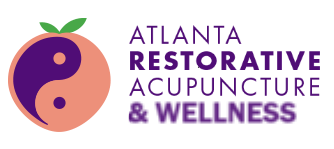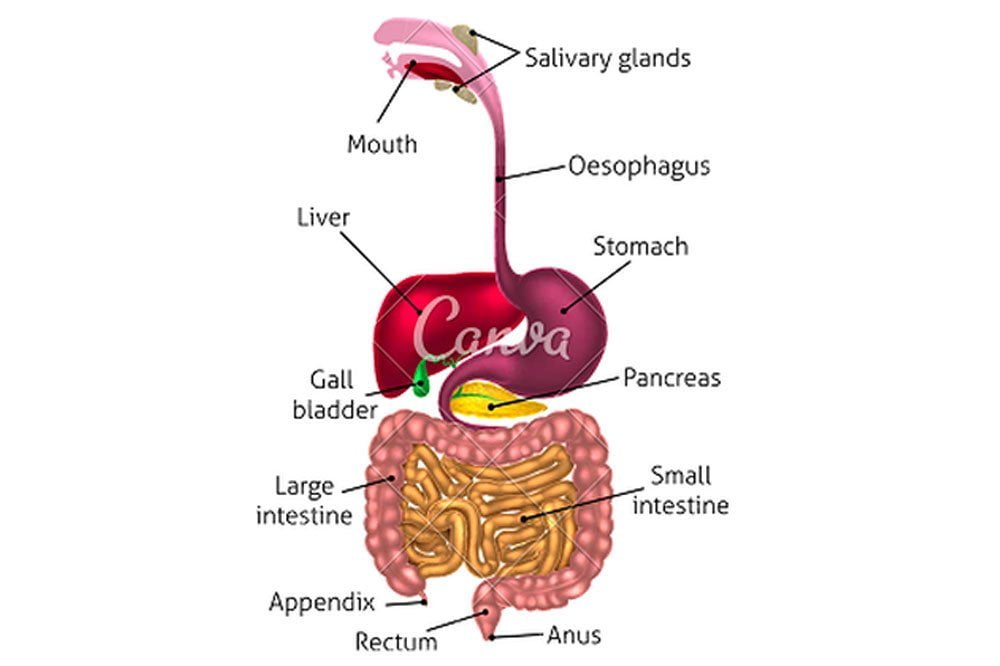20 to 30 % of the American population suffers from weekly symptoms of Acid Reflux (https://www.healthline.com/health/gerd/statistics). Acid Reflux is the counter flow of stomach acid into the esophagus. Chronic Acid Reflux is also called Gastro Esophageal Reflux Disease or GERD. The immediate cause of Acid Reflux is failure of the Lower Esophageal Sphincter or LES muscle to tighten the esophagus after food has passed to the stomach. But what causes the LES to relax and fail to do its job? There are various factors that can contribute to this problem, including stress, smoking, alcohol, various foods and drinks, belly fat, eating too close to bedtime, hiatal hernia, and pregnancy. Certain medicines, such as antihistamines, calcium channel blockers, pain-relieving medicines, sedatives, and antidepressants, can also weaken the LES. Of special, but under recognized importance in LES failure, is Intra-Abdominal Pressure (IAP) from gas that forms as a result of bacterial overgrowth in the stomach.
Drug companies are making a fortune selling presumed remedies for the symptoms of acid reflux, which include heartburn, irritation of the throat, cough and sour taste in the mouth. If untreated, acid reflux can even lead to esophageal cancer due to harmful effects of the stomach acid on the vulnerable esophageal tissue. The purpose of these drugs is to lower stomach acid, so that less acid flows from the stomach to the esophagus.
While these drugs help many people, at least for a time they come with a steep price. Stomach acid is essential to keeping stomach pH at the optimum level, to sterilize whatever we consume, and help us adequately break down our food into a bolus ready for further digestion in the Small Intestine. Furthermore, it comes as a shock for many people to realize that one of the direct causes of acid reflux is in fact, low stomach acid. Given the acid lowering action of OTC and prescription drugs for Acid Reflux, how do we make sense of this?
Mistaking Symptom for Cause
First, it may be helpful to learn that the incidence of heartburn or acid reflux rises with age, even as the levels of stomach acid decrease with age. This explains why teens are not grabbing the Gaviscon nearly as much as their elders do. Second, pharmaceutical companies and medical doctors are confusing the symptom for the cause, and robbing Peter to pay Paul. If they did not confuse the two, there is no way they could promote these drugs as the solution. Furthermore, the focus of anti Acids and Proton Pump Inhibitors is shortsightedly on the acid, rather than the reflux. OTC ant acids for acute acid reflux and prescription drugs for the chronic version, GERD, may mask the symptom for a time, but they don’t address the root of the problem; therefore, they aren’t resolving the problem. More worrisome however, is the deleterious effect these medications have on healthy digestion. Even if an OTC ant acid or a prescription drug Proton Inhibitor successfully reduces the amount of acid entering into the esophagus, by lowering the stomach acid levels, it diminishes stomach function overall.
The Crucial Role of Stomach Acid in Proper Digestion
Given the bad rep that stomach acid has received over the years, it is important to highlight again the benefits of stomach acid. The Stomach uses acid to sterilize our food and drink, preventing bacterial overgrowth. Stomach acid begins the process of protein breakdown. With sufficiently low pH, the Stomach is able to stimulate the pancreas to release sufficient digestive enzymes.
Now, let us look at the consequences of too little stomach acid. With insufficient stomach acid, there is bacterial overgrowth, improper food breakdown, which leads to intra-abdominal pressure (IAP) in the stomach, as mal-digested carbs serve as a ready food source for gas producing bacteria. This increased pressure pushes whatever level of stomach acid is present, right to the top of the stomach and into the esophagus, through the LES. IAP is literally the stomach regurgitating whatever acid is present in the stomach, into the esophagus through a weakened LES. Some of the factors in the development of a weakened LES and acid reflux, like belly fat, stress, and hiatal hernia, exacerbate the problem of Intra-Abdominal Pressure pushing stomach acid into the esophagus.
So because ant acids and prescription drugs for Acid Reflux inhibit acid production, reflux can remain an intractable problem, along with the other symptoms that can result from low stomach acid like gas, bloating, and the condition of Irritable Bowel Syndrome. Other health problems that may result from long term insufficiency of stomach acid, are allergies, nutrient deficiency, peptic ulcers, inflammation, immune deficiency and auto immune illness.
Why Going Cold Turkey off of Prescription Drugs for GERD is NOT safe!
If you are on a prescription medication for acid reflux, going cold turkey is not the safe approach. First, you might have an ulcer and/or a thin gut lining that needs to heal before you can go off of the Proton Pump Inhibitor medication. Second, if you don’t go off of these meds gradually, you may experience a rebound effect. Why? Because studies indicate that these drugs cause “rebound acid secretion” once you go off of them. In fact, one study found that 40 per cent of volunteers with no previous heartburn, acid reflux or other dyspepsia symptoms, developed these symptoms in the weeks after going off of the drugs. There is a safe way to taper your dosage, preferably under your physician’s guidance. If you cannot find a doctor willing to help you wean off of your ant acids, follow this strategy: Gradually decrease your dose. Once you get down to the lowest dose of the proton pump inhibitor, start substituting with an over-the-counter H2 blocker like Tagamet, Cimetidine, and Zantac. You can then gradually wean off the H2 blocker over the next several weeks.
Natural Remedies for Acid Reflux and What to Avoid
There are many natural remedies for easing the symptoms that result from acid reflux. The internet is filled with helpful sources for information about home remedies that can help ease the symptoms of acid reflux. This is one good source: httpss://www.pinterest.com/pin/739434832538800197/. Apples, chamomile tea, pineapple, are good examples. However, for long term recovery, it is necessary to restore proper stomach acid levels, as well as to avoid certain foods and lifestyle habits like booze and cigarettes that irritate the gastro-intestinal tract, or weaken the Lower Esophageal Sphincter. Things as seemingly innocuous as citrus might need to be avoided for a time. Hydrogenated fats, fried foods, long chain carbohydrates like grains, legumes, and starchy veggies, carbonated beverages, chocolate, tomatoes, grain products, and very spicy food may need to be avoided, at least till digestion is improved. Foods that are easy to digest should be a priority. Fruits, vegetables, bone broth, organic meats, grass fed beef, wild caught seafood, and small amounts of dry roasted or raw nuts are good choices.
How To Raise the level of Stomach Acid
To increase the amount of stomach acid, thus lowering the stomach’s pH, there are several good options. If you have an ulcer, first remember to work with your physician to wean yourself off of medications for acid reflux. Second, you can begin to take digestive enzymes while still on medication for Acid Reflux. You can also take deglycyrrhizinated licorice to help heal your ulcer or irritated gut lining.
A safe way to begin boosting stomach acid is to start with with a tablespoon or two of Unrefined Apple Cider Vinegar (with the mother) before each meal. If you have an ulcer or a thin, irritated gut lining, one teaspoon of Apple Cider Vinegar may be a safe maximum dosage till it is healed. Betaine Hydrochloric Acid with Pepsin is another excellent choice for supplementing Hypo-chlorhydria (low stomach acid), particularly when meat is consumed. It does not contain the kind of digestive enzymes found in Apple Cider Vinegar that help breakdown carbs and fat. But it may be more convenient for someone to take Betaine capsules instead of Apple Cider Vinegar. So a combination of Betaine Hydrochloric Acid with Pepsin and digestive enzymes may be necessary for maximum effectiveness in improving digestion.
In terms of proper dosage for Betaine and digestive enzymes, doctors or other health practitioners with expertise in natural approaches to healthier digestion can help guide you. It is important to pay attention to how you feel after taking Betaine Hydrochloric Acid. If you feel a burning sensation, then you likely need a smaller dosage or need to first heal an ulcer. If your digestion is not improving, you may need a larger dosage. Again, work with your practitioner to find the correct dosage for you.
Some people don’t like the large size of some Betaine tablets. One can break these in half to assist in swallowing them. If concerns still exist about swallowing these pills, Digestive Bitters may be a good alternative.
For people who have been on prescription drugs for Acid Reflux long term, it is usually helpful to supplement with Vitamin B 12 to help treat conditions like anemia, depression, fatigue, nerve damage, and even dementia associated with long term administration of these drugs.
How Chinese Medicine Can Help: Getting to the Root of the Problem
Ultimately, no one wants to be dependent on even natural supplements. While it may be necessary for some people to continue supplementation for life, Chinese Medicine (Acupuncture, Chinese Botanicals, Nutrition, Meditation, etc.) is excellent at regulating both hypo-function and hyper-function, by restoring healthy blood flow, relaxing the mind and body, and nourishing the physiology, even among the elderly. If you have a consistently low body temperature, it is usually a good sign that your metabolic fire is weak, which means your digestion is not properly transforming and transporting food and drink. For digestive enzymes to work most efficiently, your body needs to remain in the sweet spot around 98.6 (97.6 – 99.6) degrees. Many factors may play a role in hypo-function, including years of physical and mental stress draining the adrenal glands. Customized Chinese Botanical formulas can enhance your metabolic fire and nourish your physiology where there is deficiency, calm your sympathetic nervous system by promoting the parasympathetic response, and heal inflammation where there is excess.
At my clinic, I use a variety of Western and Eastern diagnostic techniques to tease out the root cause of poor health. The process of healing begins with a free consultation, in which I begin to identify the root cause(s). I then identify the hidden obstacles sabotaging a person’s ability to be well. Then, I create a customized action plan to get my patient feeling well ASAP. Based on my 15 plus years of clinical experience, and the information I gain in this consultation, I can make a working diagnosis, and recommend a specific treatment plan utilizing what I think are the best modalities to get my patient feeling better, again, ASAP. In short, I provide a roadmap for better health that leaves a patient feeling excited to finally resolve their health challenge.
If you suffer from poor digestion, including GERD, pain, or any other condition, I can likely help. Each week, I try to leave two to three slots in my schedule for Free Freedom from Pain/Dis-ease consultations. To schedule your free 30 minute appointment, click here: httpss://mindbodywellnessatl.janeapp.com/#/staff_member/8 or call (678) 631-7965. If you found this article interesting, please share with your friends and be sure to visit my blog at mindbodywellnessatl.com on a regular basis to learn more about how you can live a life free from pain and dis-ease.





